Varicose veins are more than a cosmetic concern. They can cause discomfort, swelling, and even serious complications if left untreated. Many people search for answers to “What kind of doctor treats varicose veins?” because they want relief and long-term results. The answer is simple: vein specialists, also known as phlebologists or vascular doctors, are trained to diagnose and treat all types of vein disorders.
At Vein Treatment New Jersey, our vein experts provide advanced, minimally invasive procedures to address the root cause of varicose veins, not just the visible symptoms. Choosing the right specialist ensures you receive safe, effective, and lasting results.
Understanding What Vein Centers Do
If you’re wondering what do vein centers do, think of them as specialized clinics dedicated to diagnosing and treating vein problems. Unlike general medical practices, Centers for Vein Treatment in New Jersey focus entirely on vascular health, offering expertise and state-of-the-art technology to treat everything from spider veins to chronic venous insufficiency.
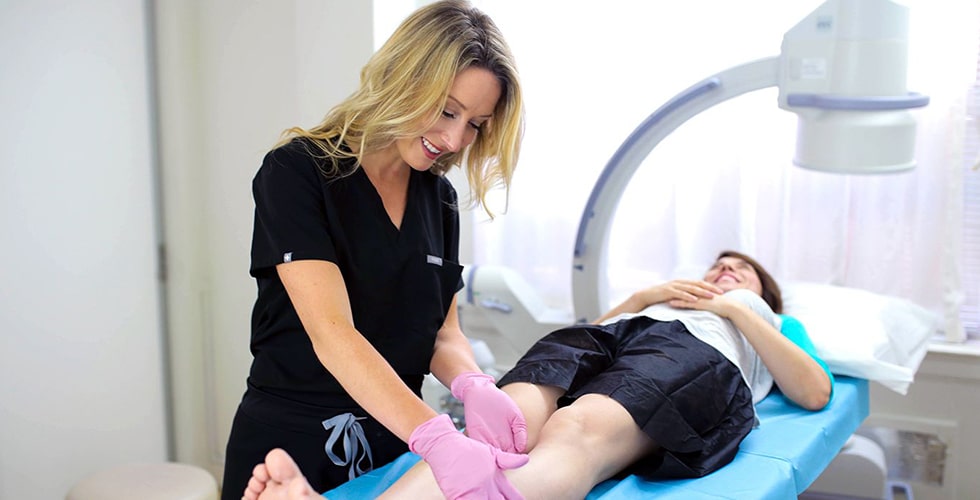
At Vein Treatment New Jersey, the process begins with a comprehensive evaluation, including ultrasound imaging to map your veins and determine the severity of your condition. This thorough assessment helps your doctor create a personalized treatment plan tailored to your needs.
The Role of a Vein Specialist
When you ask, “What kind of doctor treats varicose veins?”, the best answer is a board-certified vein specialist. These doctors are highly trained in diagnosing and treating vein disorders using minimally invasive procedures. Vein specialists may have backgrounds in vascular medicine, interventional radiology, or cardiology, and they focus on venous health exclusively.
Their expertise ensures that you not only get rid of visible varicose veins but also address the underlying issues causing them. This approach reduces the risk of recurrence and improves overall leg health.
How Vein Experts Treat Varicose Veins
Our vein experts use advanced, non-surgical treatments that are performed in-office and require no hospital stay. Patients typically return to normal activities the same day. Some of the most effective procedures include:
-
Endovenous Laser Treatment (EVLT): Uses laser energy to close malfunctioning veins.
-
Radiofrequency Ablation (RFA): A heat-based method that seals veins safely and effectively.
-
VenaSeal: A medical adhesive that closes veins without heat or anesthesia.
-
Sclerotherapy: An injection treatment designed for smaller varicose veins and spider veins.
These treatments are not only effective but also nearly painless, making them a popular choice for busy patients who want lasting results without downtime.
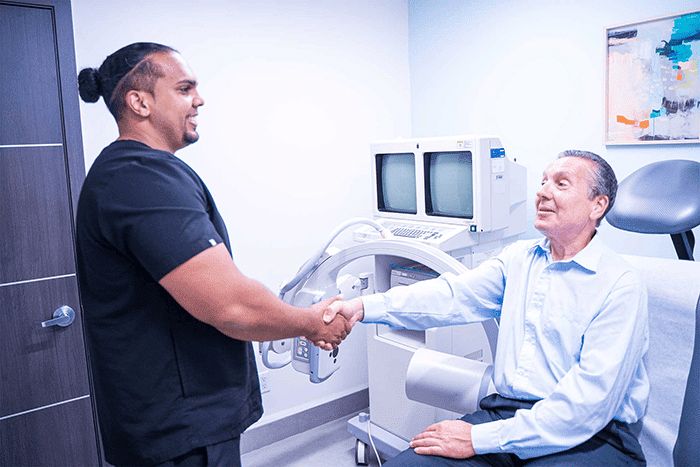
Why Choose Centers for Vein Treatment in New Jersey
Choosing the right clinic is just as important as finding the right doctor. Centers for Vein Treatment in New Jersey, like Vein Treatment New Jersey, specialize in patient-centered care. The team uses advanced diagnostic tools and cutting-edge technology to ensure every treatment is safe and effective.
Patients choose this center because it offers:
- Board-certified vein specialists with extensive experience
- Comprehensive evaluations that address the root cause of vein problems
- Minimally invasive procedures with quick recovery times
- A warm, supportive environment designed to make treatment stress-free
When you trust experts who focus solely on vein health, you can feel confident in your care and results.
Take the Next Step Toward Healthy Legs
If you’ve been wondering, “What kind of doctor treats varicose veins?”, the answer is clear: a vein specialist can give you the expert care you need. At Vein Treatment New Jersey, our vein experts combine advanced technology with compassionate care to deliver safe, effective, and lasting solutions.
Don’t wait for your varicose veins to worsen. Schedule a consultation today at one of the leading Centers for Vein Treatment in New Jersey and take control of your vein health. With the right care, you can enjoy healthier, more confident legs in no time.
Many people who experience painful, bulging veins often ask, “Are varicose veins covered by insurance?” in the United States. The answer depends on whether the condition is considered medical or cosmetic. Insurance companies generally cover varicose vein treatments if the veins cause significant discomfort, swelling, skin changes, or other medical complications. However, purely cosmetic procedures are usually not included in insurance coverage.
At Vein Treatment New Jersey, patients often want to know if their health insurance will help reduce the cost of their procedures. Understanding how insurance works and the role of a vein treatment specialist can help you make the best decision for your health and budget.
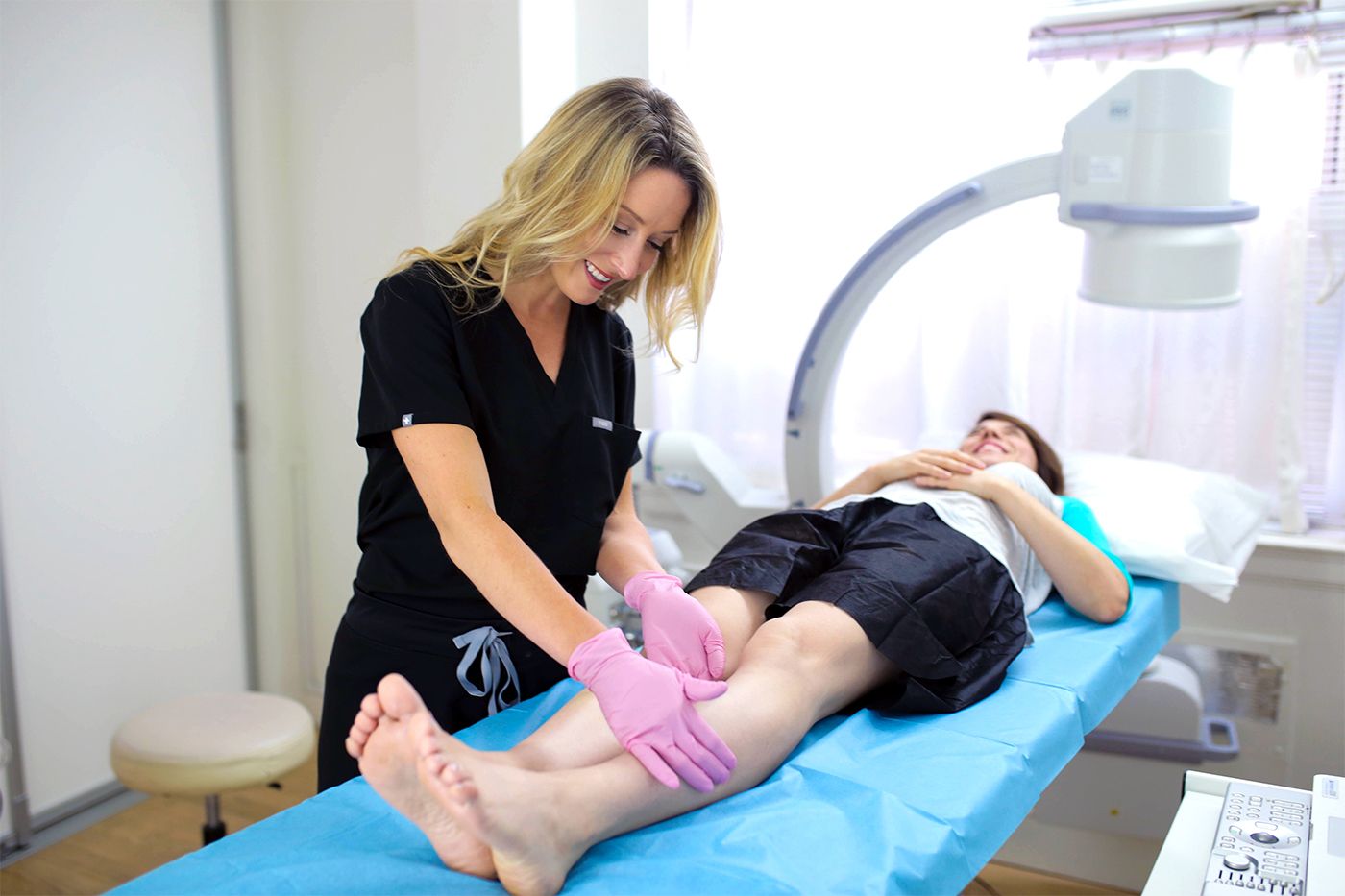
Medical Necessity vs. Cosmetic Concern
Insurance companies determine coverage based on whether treatment is medically necessary. If varicose veins cause symptoms such as:
- Persistent leg pain or heaviness
- Swelling in the legs or ankles
- Skin discoloration or ulcers
- Bleeding from veins
then insurance providers are more likely to cover the cost of treatment.
On the other hand, if you want to remove varicose veins only for cosmetic reasons, the procedure might not be covered. In such cases, patients often pay out of pocket.
What Are the Treatment Options for Varicose Veins?
When you visit a vein treatment clinic, a vein treatment specialist will perform an evaluation to determine which treatment is right for you. Some of the most common options include:
-
Endovenous Laser Treatment (EVLT): A minimally invasive procedure that uses laser energy to close diseased veins.
-
Radiofrequency Ablation (RFA): Uses radiofrequency waves to collapse and seal affected veins.
-
Sclerotherapy: Involves injecting a solution into smaller varicose or spider veins to make them fade.
-
VenaSeal Closure System: A medical adhesive seals the vein without heat or surgery.
-
Ambulatory Phlebectomy: A minor surgical procedure that removes surface veins through small incisions.
These treatments are typically covered by insurance when they address pain, swelling, or other health complications.
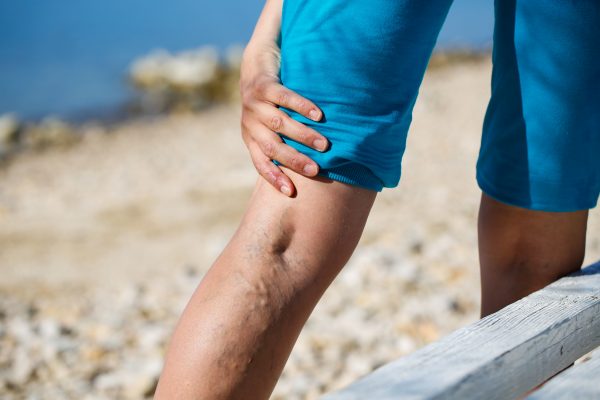
Role of a Vein Treatment Specialist
Choosing the right vein treatment specialist is crucial. At Vein Treatment New Jersey, doctors carefully assess your condition with ultrasound imaging to confirm whether your veins are contributing to symptoms. This medical documentation is often necessary for insurance approval. Specialists also submit the required paperwork to your insurance provider, increasing the likelihood of coverage.
How Insurance Approval Works
Insurance companies often require proof of failed conservative treatments before approving minimally invasive procedures. For example, you may need to try wearing compression stockings, elevating your legs, or taking over-the-counter pain relievers for several weeks. If these methods do not relieve your symptoms, your specialist can justify the medical necessity of advanced procedures.
At Vein Treatment New Jersey, the team helps patients navigate this process. They guide you through insurance forms, provide medical evidence, and work with your insurance company to minimize out-of-pocket costs.
Why Choose a Vein Treatment Clinic?
A specialized vein treatment clinic offers not only advanced technology but also insurance expertise. Clinics like Vein Treatment New Jersey prioritize patient comfort and affordability. By consulting directly with a specialist, you can confirm whether your treatment qualifies for insurance coverage. This ensures you get the care you need without unnecessary financial stress.
Final Thoughts
So, are varicose veins covered by insurance? In the United States, the answer is yes—when the condition is considered medically necessary. If you experience pain, swelling, or skin issues caused by varicose veins, insurance is likely to help cover the cost of treatment.
Visiting a vein treatment clinic and working with an experienced vein treatment specialist is the best way to confirm your coverage. Clinics like Vein Treatment New Jersey not only provide state-of-the-art treatment but also assist patients with insurance approval, making effective vein care more accessible.
If you have noticed leg pain, swelling, or visible veins on your skin, you might wonder whether it’s time to get a professional opinion. Many people ask, “What do vein centers do?” The answer is simple yet important: vein centers specialize in diagnosing and treating conditions related to your veins. These medical facilities provide accurate evaluations, modern treatment options, and preventive care to ensure that vein issues do not worsen over time. At Vein Treatment New Jersey, highly trained specialists use advanced technology to pinpoint the root cause of vein problems and create personalized care plans.
What Do Vein Centers Do?
Vein centers focus exclusively on the health of your veins. Unlike general clinics, they have vein treatment doctors who are trained to diagnose venous conditions such as varicose veins, spider veins, and chronic venous insufficiency. The goal of these centers is not only to address cosmetic concerns but also to identify underlying medical issues that may affect circulation.
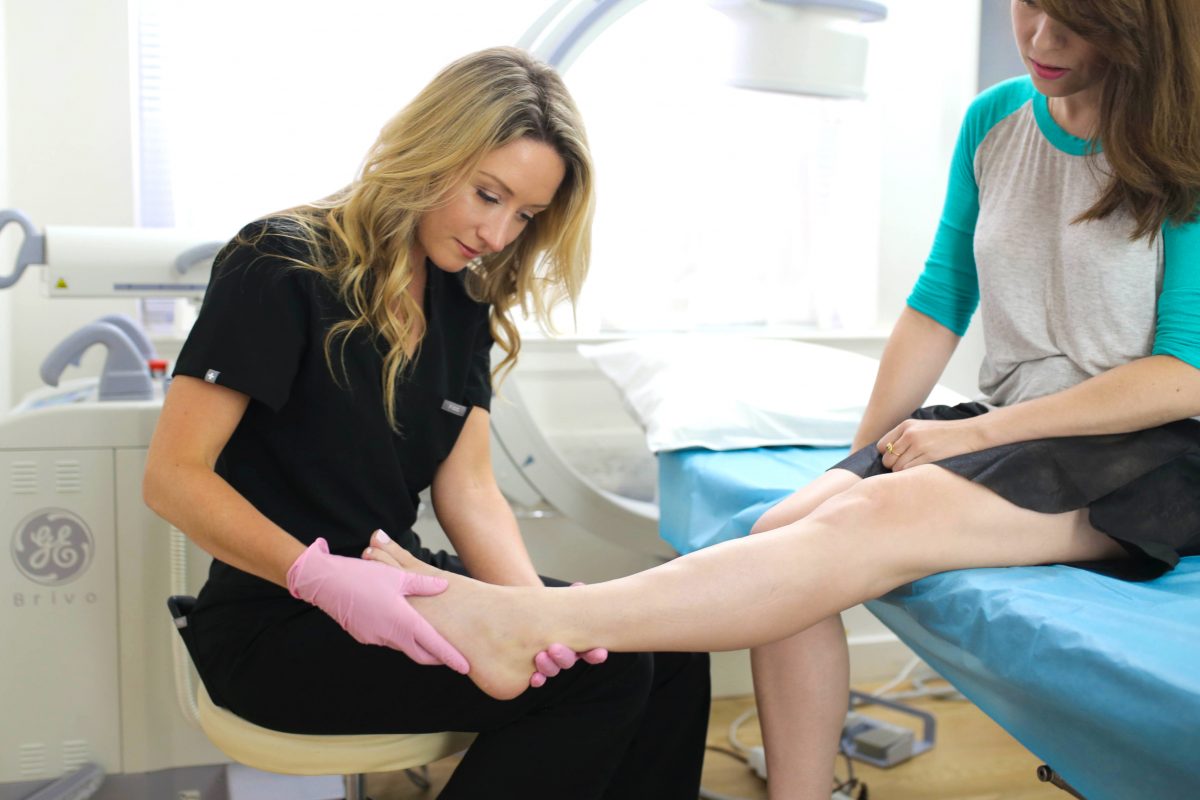
At Vein Treatment New Jersey, doctors combine physical exams with advanced diagnostic tools to find the exact cause of vein issues. This targeted approach ensures patients receive the right treatment without unnecessary procedures.
Common Symptoms That Lead Patients to Vein Centers
People often wonder, “When to see a vascular doctor?” You should consider visiting a vein treatment center if you experience:
- Leg pain, heaviness, or cramping, especially after long periods of standing.
- Swelling in the ankles or calves.
- Visible veins such as bulging varicose veins or clusters of spider veins.
- Skin discoloration around the legs or ankles.
- Non-healing sores or ulcers on the lower legs.
These symptoms may indicate more than just cosmetic issues. They could be early signs of venous insufficiency, a condition where blood does not flow properly back to the heart. Vein centers provide the specialized care needed to detect and manage such conditions.
How Vein Centers Diagnose Vein Problems
Diagnosis begins with a comprehensive consultation. At Vein Treatment New Jersey, vein doctors start by reviewing your medical history and discussing your symptoms. This initial step helps them understand potential risk factors, such as family history, occupation, or lifestyle.
The next step is a physical examination. During this process, the doctor evaluates your legs for visible signs of vein disease, such as swelling, skin changes, or varicose veins.
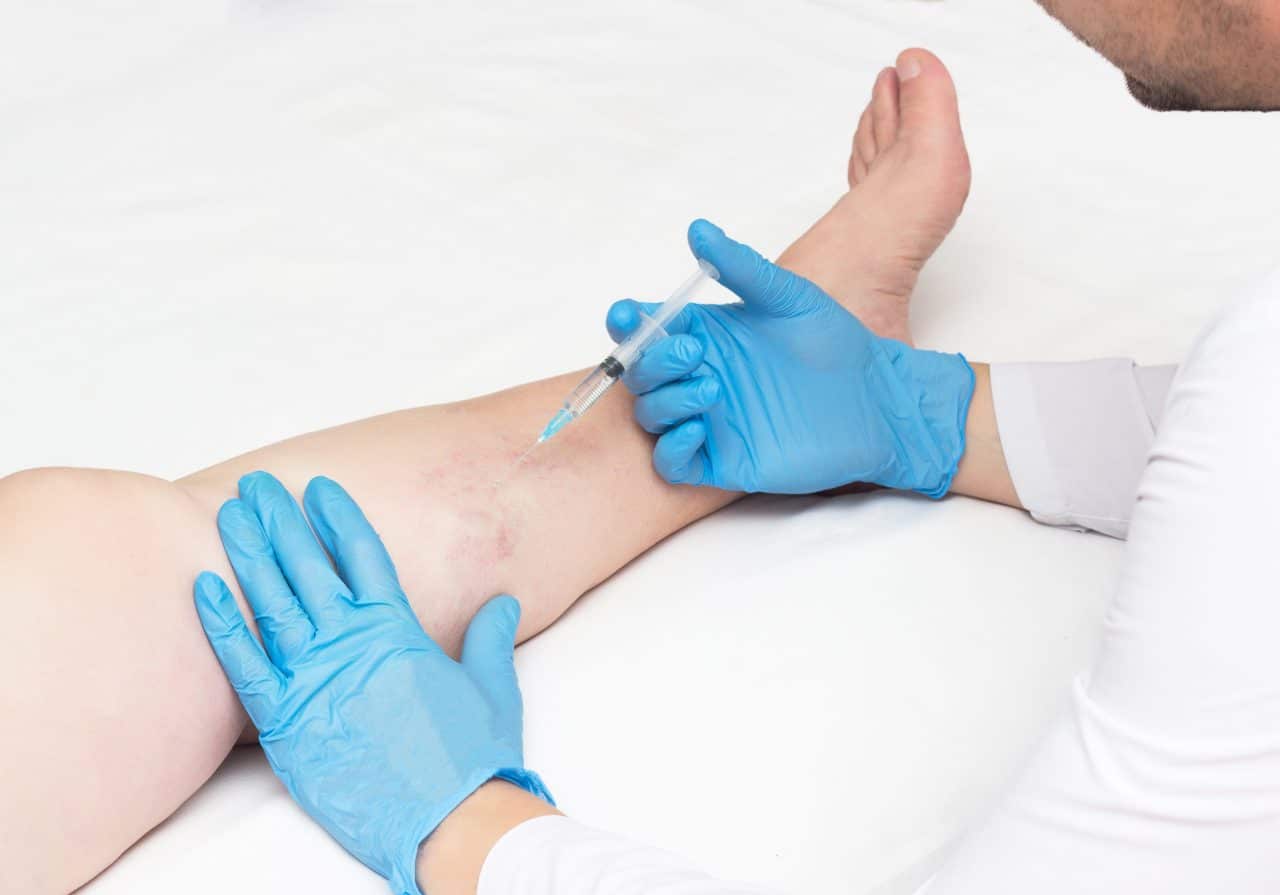
However, visual inspection alone is not enough. That’s why vein centers rely on duplex ultrasound technology. This non-invasive test uses sound waves to examine blood flow and vein structure in real time. It helps vein treatment doctors detect blockages, valve malfunctions, or pooling of blood in the veins.
With this diagnostic tool, doctors can determine whether a patient’s symptoms are due to cosmetic spider veins or a more serious condition like chronic venous insufficiency.
Why Specialized Diagnosis Matters
You may wonder why you can’t just visit a general physician. The difference is that vein centers use specialized technology and expertise focused solely on vascular health. General clinics might identify visible vein problems but often lack the tools to assess the underlying cause.
At a specialized vein treatment center, such as Vein Treatment New Jersey, you benefit from an accurate diagnosis that leads to effective, minimally invasive treatments. By identifying the problem early, patients avoid complications like worsening varicose veins, skin damage, or leg ulcers.
When to See a Vascular Doctor
Timing matters when it comes to vein health. Many patients delay care because they think vein problems are only cosmetic. In reality, untreated vein issues can become progressively worse. You should know when to see a vascular doctor:
- When leg discomfort interferes with daily life.
- If swelling does not improve with rest or elevation.
- If veins appear twisted, bulging, or painful.
- When skin changes or ulcers develop.
Visiting a vein center at the first sign of trouble ensures quicker recovery and less invasive treatment options.
Conclusion
So, what do vein centers do? They specialize in diagnosing and treating vein problems with precision and care. Through detailed consultations, physical exams, and advanced ultrasound imaging, centers like Vein Treatment New Jersey provide patients with accurate answers and effective solutions.
Knowing when to see a vascular doctor can make all the difference in your vein health. By visiting a vein treatment center, you not only improve your circulation but also prevent future complications. With the expertise of skilled vein treatment doctors, you can enjoy healthier legs and a more active lifestyle.





